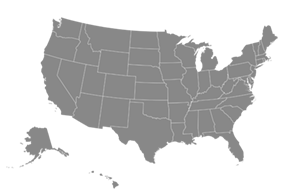


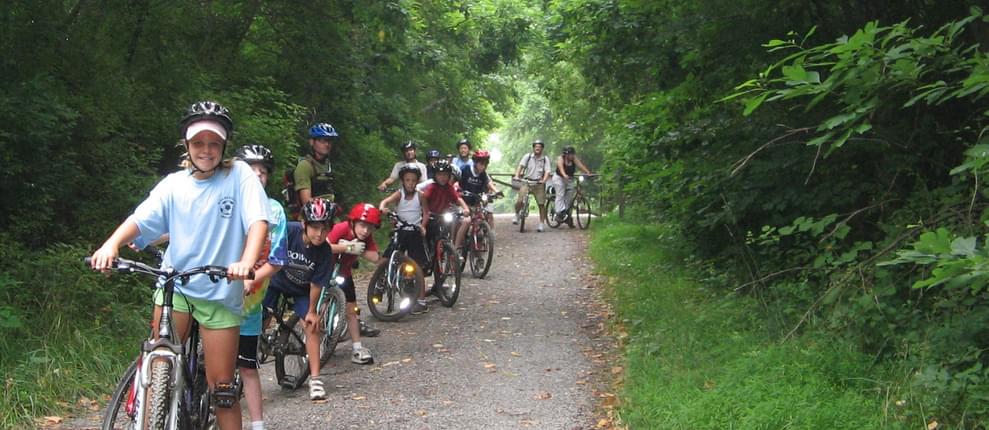

Subscribe to our mailing list for notifications on our latest trainings.
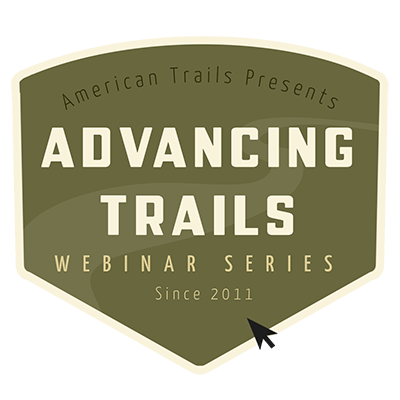
This webinar will identify trail studies and existing programs that may effectively promote and increase the use of trails among youth, especially those from under-resourced neighborhoods or communities.
Presented by:
** This event has passed **
April 22, 2021
10:00 AM to 11:30 AM (Pacific Time) {more time zones}
Cost (RECORDING):
FREE for membersNote:
Closed Captioning is available for this webinar.
Learning Credits are available for this webinar.
This webinar is free. Would you consider a donation to support this webinar?
This webinar will identify trail studies and existing programs that may effectively promote and increase the use of trails among youth, especially those from under-resourced neighborhoods or communities. We’ll identify evidence-based public health recommendations that pertain to trail use, correlations of physical activity and trail use that may inform and support the planning and implementation of programs to promote trail use among youth, benefits associated with trail use, and barriers to trail use.
We’ll hear from health experts about the importance of reaching under-resourced communities, and share results from the scientific and program review. We’ll hear from the US Forest Service about the physical, financial, and social barriers that keep young people of color from hiking in nature, and critical elements of successful interventions. We’ll also have two case studies where communities and health systems worked together to ensure that youth in under-resourced communities have access to trails and outdoor recreation opportunities. American Trails is committed to Justice, Equity, Diversity, and Inclusion: this webinar promotes trail access for all.

This webinar qualifies as a Health, Safety, and Welfare (HSW) course (via LA CES).
Hiking Trails in America: Pathways to Health, American Hiking Society, p. 3
Fifty years ago President Johnson set in motion the establishment of a national system of trails for America. Since LBJ’s famous speech outlining his vision, America has accomplished much...
Research has connected sedentary lifestyles with numerous negative health outcomes, including a significant increased risk for mortality.
Van Do, Program Officer II, National Collaborative on Childhood Obesity Research

Van Do, MPH is a Program Officer II in FHI 360’s Social Marketing and Communication (SMC) department, Ms. Do supports the National Collaborative on Childhood Obesity Research (NCCOR), which is a public-private partnership among the National Institutes of Health, the Centers for Disease Control and Prevention, the Robert Wood Johnson Foundation, and the U.S. Department of Agriculture.
Mike Hill, ASLA, Landscape Architect, USDA Forest Service
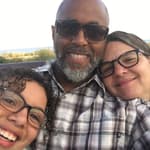
Mike Hill's career has been devoted to engaging diverse communities through design and construction, education, environmental stewardship and sustainable development. Notable projects include a conceptual scope of work and schematic design report for La Mina Recreation Area, El Yunque National Forest in Puerto Rico; scenic resource impact analyses on multiple forests; design for interior greening project, to promote patient and staff well-being at a DC-area nonprofit healthcare provider; developing a comic book explaining access equity with FS educational partners; organizing DC-area Every Kid Outdoors efforts; and schematic design through full construction package for Phase I of a major campground redesign on the Kaibab National Forest, just outside of the south gate of Grand Canyon National Park. Prior to joining the Forest Service, Mike was Outreach Programs Coordinator at the National Building Museum and Executive Director of Shaw EcoVillage, both in DC.
Mike received his BS in Architecture from the Catholic University of America in 1987 and his Masters in Landscape Architecture from Virginia Tech’s Washington-Alexandria Architecture Center in 2011, where he was awarded the Stanley Abbott Award for best landscape architecture thesis. In 2012 Mike was named Community Outreach Person of the Year by the DC Chapter of the National Organization of Minority Architects. He is a member of the American Society of Landscape Architects, Society of Outdoor Recreation Professionals and Black Landscape Architects’ Network.
Mike lives and works in DC with his wife Mychalene and daughter Lucia. When they are not visiting museums, listening to podcasts or cooking (overly complicated) dinners, they are joining friends and family for game nights, long hikes in the many parks in the DMV, or beach trips to Maryland and New Jersey.
David R. Brown, Ph.D., Senior Behavioral Scientist, Centers for Disease Control and Prevention
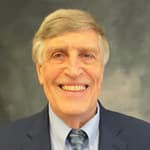
David R. Brown, Ph.D., is a Senior Behavioral Scientist with the Centers for Disease Control and Prevention, Division of Nutrition, Physical Activity and Obesity, Physical Activity and Health Branch, Atlanta, GA. His education and training are in Exercise Science/Exercise and Sport Psychology (Ph.D., University of Wisconsin-Madison), Educational/School Psychology (Ph.D. and M.A., University of Arizona), and Special Education (B.S., Western Michigan University). Before coming to CDC, he served as a special education teacher and then as school psychologist in a public school district in Tucson, Arizona; as Assistant Professor in the Department of Physical Education, Health, and Sport Studies at Miami University-Ohio; and as Director of Exercise and Sport Psychology in the Exercise Physiology and Nutrition Laboratory, Department of Cardiovascular Medicine at the University of Massachusetts Medical Center. His public health career has focused on promoting physical activity and health among older adults, people with disabilities, and people from different racial and ethnic groups; the interaction between personal, social, and built environmental factors that influence physical activity behavior; and the physical, mental, and social health benefits associated with physical activity, including the use of trails for outdoor recreation, interaction with and enjoyment of natural environments. Dr. Brown is a Fellow of the American College of Sports Medicine.
Dr. Julian A. Reed, Professor of Health Sciences, Furman University

Dr. Reed is a Professor in the Department of Health Sciences at Furman University in Greenville, South Carolina and is an Affiliate of the Prevention Research Center in the Arnold School of Public Health at the University of South Carolina in Columbia. Dr. Reed holds a Bachelor of Arts in Environmental Studies from Hobart and William Smith Colleges; a Master’s of Science in Exercise and Sport Sciences from the University of Miami, a Doctorate in Exercise and Sport Sciences from the University of Northern Colorado and most recently received his Masters of Public Health from the University of South Carolina.
Reed’s research focuses on investigating associations between recreational trails and physical activity as well as examining links between physical activity and cognitive function of youth. He has disseminated his research in the numerous journals including: Journal of Physical Activity and Health, Preventive Medicine, Preventing Chronic Disease, Landscape and Urban Planning, Journal of Outdoor Recreation and Tourism and the Journal of American College Health.
Ty Houck, Director of Greenways, Natural and Historic Resources, Greenville County Parks, Recreation, and Tourism
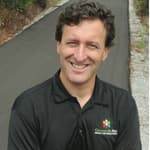
Yves Zsutty, Division Manager, City of San Jose - Parks, Recreation, and Neighborhood Services

Yves Zsutty is a Division Manager for the City of San Jose - Department of Parks, Recreation, and Neighborhood Services, overseeing the Capital Improvement Program division. He oversees delivery of Parks, Trails and Projects. Formerly, the department’s Trail Manager, Yves has guided planning of a 100-mile inter-connected trail network that serves recreational and commuting objectives. He has overseen development of over 35 miles of Class I trails and secured over $40,000,000 in grant funding from Local, State and Federal sources. San Jose’s existing 62-mile urban trail network is already one of the nation’s largest, and recognized by the FHWA for Transportation Planning Excellence. Yves has a degree in Civil Engineering from San Jose State University, and enjoys gardening, photography and travel…and some hiking.
We are offering closed captioning for our webinars, thanks to a partnership with VZP Digital. If you are in need of this service, please email us prior to the webinar. An unedited transcript will be sent to all attendees following the webinar.
American Trails is proud to be a certified provider of the following learning credits and continuing education opportunities:
Learning credits are free for attendees for American Trails webinars and the International Trails Symposium, as well as for other conferences, webinars, and workshops we offer credits for. Learn more here.
While we may individually agree (or disagree) in whole or in part with any or all of the participants, the views expressed in these webinars are not necessarily representative of the views of American Trails as an organization or its board and staff. Unless specific situations are noted by presenters, nothing in American Trails webinars should be considered to be interpreted as a standard.
By registering for our webinars, you submit your information to the webinar organizer and associated presenters and sponsors, who may use it to communicate with you regarding this event and their other services. Your organization may also be added to the American Trails Business Directory. You can easily cancel your registration at any time.
8,139 views • posted 01/22/2021
